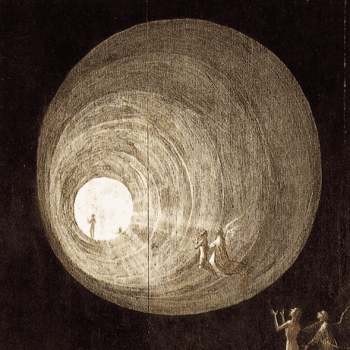The gospel functions as the boundary of Christianity. Those who are outside the boundary (those who deny the gospel) must be treated as non-Christians. This treatment must not change when these persons claim to be Christians, or even when they perceive themselves as Christians. No form of Christian commonality or fellowship should ever be extended to such individuals.
Of course, some Christians (those who are inside the circle) see things differently. While they themselves profess the gospel, they do not believe that the gospel (or, more specifically, the fundamentals of the gospel) ought to become an inflexible boundary that determines Christian fellowship. In other words, even though these people affirm the gospel, they are willing to extend Christian fellowship and recognition to people who deny it.
This is the position that J. Gresham Machen labeled "Indifferentism" (a discussion of Machen's categories awaits a future essay). It is also the philosophy that became the heart and mainspring of the New Evangelicalism. The Indifferentist philosophy explicitly contradicts the idea of fundamentalism, and fundamentalists have rejected it with near unanimity.
Fundamentalism insists that the gospel is the boundary of Christian fellowship. Those who reject doctrines that are fundamental to the gospel have placed themselves outside the circle of Christian recognition. Conservative evangelicals would in principle agree with this point.
What about differences within the circle, however? What about differences over doctrines and practices that do not directly affect the gospel? Do those differences still affect Christian fellowship? These are questions for another essay.
Reprinted with permission from "In the Nick of Time," an electronic publication of Central Baptist Theological Seminary.
Kevin Bauder, Ph.D., is president of Central Baptist Theological Seminary.
For more articles like this, see Patheos' Evangelical Portal.




